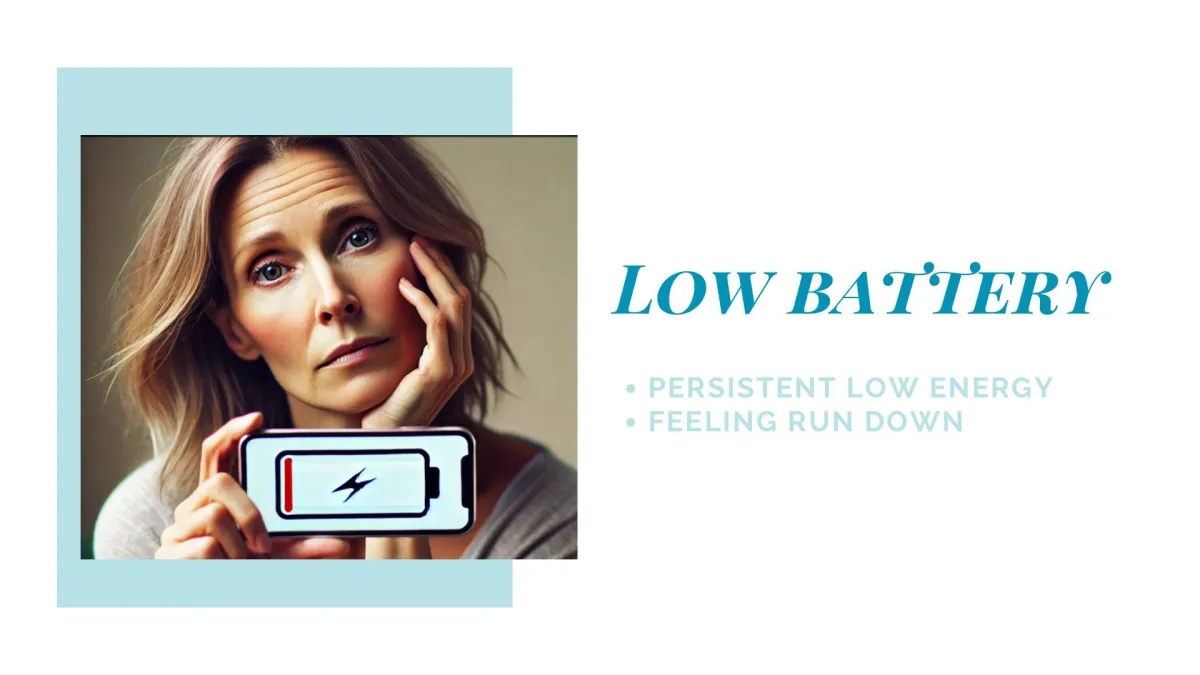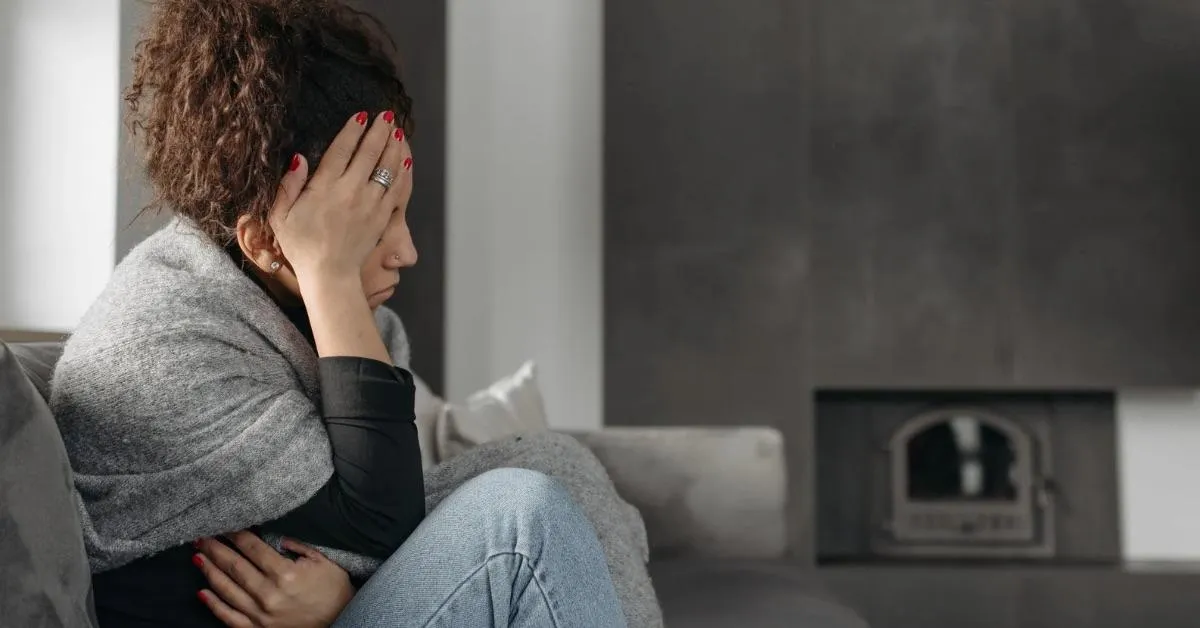
Low Battery: When Rest Just Isn’t Enough
If you’ve been feeling completely wiped out—even after a full night of sleep—you might be dealing with Low Battery, a pattern of deep, cellular-level fatigue that goes beyond ordinary tiredness.
This kind of exhaustion can leave you feeling flatlined, disconnected, and frustrated. You might be dragging through your day, skipping workouts that used to energize you, or finding it hard to focus or recover from even simple activities. It’s not laziness—it’s a signal that your body’s energy systems are struggling.
What’s Really Going On?
At the root of this type is often sluggish mitochondrial function—your cells aren’t producing energy the way they used to. Think of mitochondria as your body’s little power plants. When they aren’t working efficiently, it doesn’t matter how much you rest or how clean your diet is—your body still feels depleted.
Layer in hormonal shifts like low thyroid, adrenal dysfunction, insulin resistance, or steep declines in estrogen, progesterone, and testosterone, and it’s no wonder everything feels heavier.
What if You’re In Perimenopause?
Low Battery can show up in late perimenopause, especially after years of pushing through stress, under-sleeping, or under-fueling your body. If you’re finding it harder to recover from workouts or stress, or you feel physically heavy and drained even after rest, this could be your body’s way of slowing you down. Supporting energy systems early can help you avoid that full crash in postmenopause.
But What If You’re Already Postmenopausal?
This pattern is incredibly common in postmenopausal women. As reproductive hormones decline, the burden of hormonal regulation shifts heavily to your adrenals and mitochondria.
If those systems are already taxed from years of stress, under-eating, overexercising, poor sleep, or inflammation, the result is a slow but steady drain on your energy reserves. That’s why even a good night’s sleep or a quiet weekend doesn’t refill your tank the way it used to.
If you’re feeling like you’re running on fumes no matter what you do—your body isn’t broken. It’s simply asking for a deeper kind of nourishment and recovery.

Symptoms You Might Be Dealing With
Deep, unrelenting fatigue
Feeling physically weak or heavy
Dizziness or feeling “off” during activity
Needing naps or caffeine just to function
Trouble with memory or mental clarity
Low motivation or difficulty following through
Poor recovery after exercise or busy days
Why This Matters
When energy production slows down, everything is impacted—your metabolism, your brain, your mood, your resilience, your sleep, and your hormones.
Low Battery doesn’t fix itself with willpower or more rest. In fact, pushing through only drains your reserves further. What your body really needs is a focused reset that helps you rebuild energy from the inside out.
What You Can Do About It
You don’t need to do more—you need to do smarter. Supporting your mitochondria, adrenals, and nervous system can gently rebuild energy without overwhelming your already-depleted system.
Incorporating gentle lifestyle changes—like establishing a consistent sleep routine, engaging in regular physical activity, and maintaining a balanced diet—can help boost your energy levels. However, understanding the specific needs of your body during this transition is crucial.
That’s where the Menopause Playbook program comes in. It’s not just a generic guide; it’s a personalized roadmap designed to help you navigate the unique challenges of menopause. With expert guidance, tailored strategies, and a supportive community, you’ll have the tools you need to regain control and feel like yourself again.
Don’t let fatigue dictate your life. Take the first step towards renewed energy and well-being.
Want a Clearer Path Forward?
If you’re ready to stop surviving and start restoring, I invite you to join me inside My Menopause Playbook.
It’s a 4-month group coaching program tailored to your specific menopause type—like Low Battery. Together, we’ll create a plan to restore energy, improve your sleep and focus, and build a sustainable rhythm that actually works for your body now.
You’ll be surrounded by other women who truly get it, with expert guidance, structure, and real accountability along the way.
And yes—it’s a 4-month commitment. But be honest with yourself: how long have you been stuck in this energy slump? And how long might it continue if you don’t make a change?
This is your chance to rebuild—not just energy, but confidence, clarity, and strength.